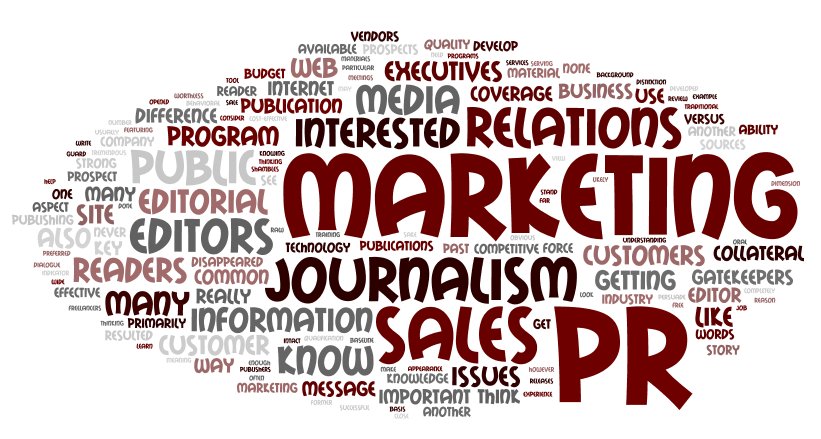Introduction
In today’s fast-paced, digital world, PR marketing is more important than ever for ensuring your brand stands out in the crowded marketplace. Whether you’re a startup or an established name, leveraging public relations can make or break your brand’s success. But what exactly makes PR marketing indispensable? Let’s break it down.
Enhancing Brand Credibility
Why Credibility Matters
When it comes to choosing between two brands, most people will go with the one they trust. That’s where PR marketing steps in. PR builds a foundation of trust by strategically placing your brand in reputable media outlets and securing endorsements from influencers. This isn’t just fluff. It’s a proven way to enhance your brand credibility.
Real-World Application
Take, for example, a tech startup that lands a feature in TechCrunch. That single piece can skyrocket the brand’s credibility, making it a go-to choice for consumers and investors alike. PR marketing ensures that your brand is seen in the right places and endorsed by the right people.
Managing Reputation
The Role of PR in Reputation Management
In the age of social media, a single negative review can spread like wildfire. But don’t worry—PR marketing has got your back. Good PR isn’t just about good news; it’s also about damage control. Effective PR strategies can help manage crises, turning potential disasters into opportunities for growth.
Effective Strategies
Consider how Johnson & Johnson handled the Tylenol tampering crisis in the 1980s. Through transparent communication and swift action, they managed to regain public trust and set a new industry standard for safety. PR played a crucial role in managing their reputation.
Increasing Visibility
Why Visibility is Crucial
You could have the best product in the world, but if no one knows about it, does it really matter? PR marketing increases your brand’s visibility, making sure you’re not the best-kept secret in your industry.
How PR Boosts Visibility
From press releases to media pitches, PR ensures your brand’s story is told far and wide. Take the example of a fashion brand that gets featured in Vogue. That kind of media coverage can significantly boost brand visibility, putting your products in front of millions of potential customers.
Building Relationships
Importance of Relationship-Building
Successful brands don’t just have customers; they have advocates. And how do you turn customers into advocates? Through building strong, positive relationships. PR marketing excels in this area.
Building and Maintaining Relationships
Imagine being a small business with a loyal customer base that doubles as your word-of-mouth marketing team. By engaging in community activities, sponsoring local events, and interacting on social media, PR helps cultivate these invaluable relationships. Relationships built through PR are long-lasting and highly beneficial for brand loyalty.
Supporting Overall Marketing Efforts
The Bigger Picture
PR doesn’t operate in a vacuum. It works in synergy with your overall marketing strategy. The content generated through PR initiatives can be repurposed across various channels, amplifying your marketing efforts.
PR in Action
Think about a comprehensive marketing campaign that includes everything from social media ads to email newsletters. Now, add a few well-placed PR articles and a couple of influencer endorsements to the mix. What do you get? A robust, multi-channel strategy that boosts your brand’s reach and impact.
Conclusion
To sum it all up, PR marketing is not just an add-on; it’s an essential part of a successful brand strategy. From enhancing brand credibility and managing your reputation to increasing visibility, building relationships, and supporting overall marketing efforts, PR plays a pivotal role in ensuring your brand’s long-term growth and stability.
FAQs
Q1. What is PR marketing?
A1. PR (Public Relations) marketing involves managing the spread of information between an organization and the public to enhance brand awareness, credibility, and reputation.
Q2. How does PR marketing differ from advertising?
A2. Unlike advertising, which is paid media, PR relies on earned media—gaining exposure through various channels without direct payment. PR focuses on building relationships and credibility, whereas advertising is more about promotion.
Q3. Can small businesses benefit from PR marketing?
A3. Absolutely! PR marketing isn’t just for big brands. Small businesses can significantly benefit by building local credibility, managing their reputation, and increasing visibility within their target market.
Q4. How do I measure the success of my PR efforts?
A4. Success can be measured through various metrics such as media coverage, social media engagement, website traffic, and overall public sentiment. Tools like Google Analytics, social listening platforms, and media monitoring services can provide valuable insights.
Q5. How do I get started with PR marketing?
A5. Start by defining your goals and identifying your target audience. Develop a PR plan that includes key messages, media outlets, and relationship-building tactics. Consider hiring a PR professional or agency to guide your efforts.
Ready to take your brand to the next level with PR marketing? Get started today and see the difference it can make!







